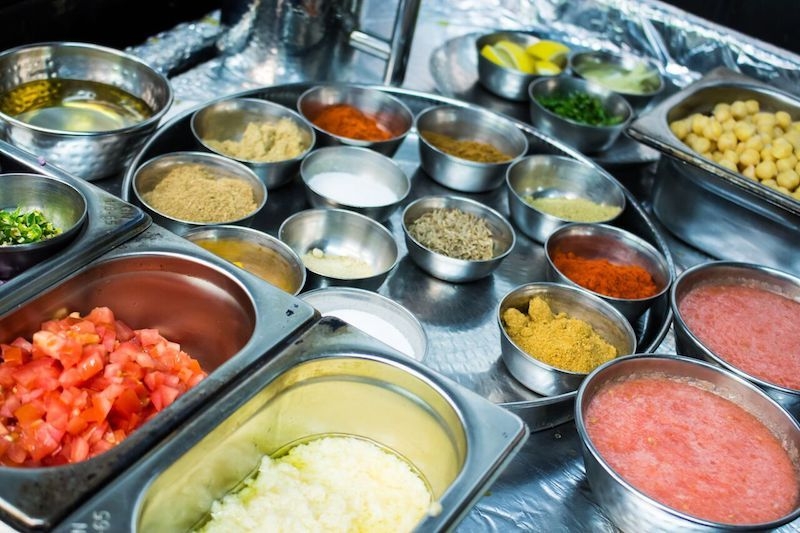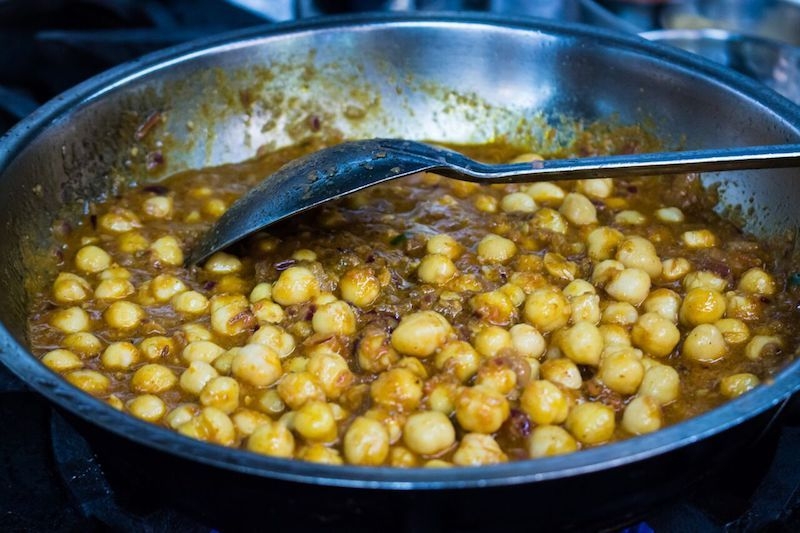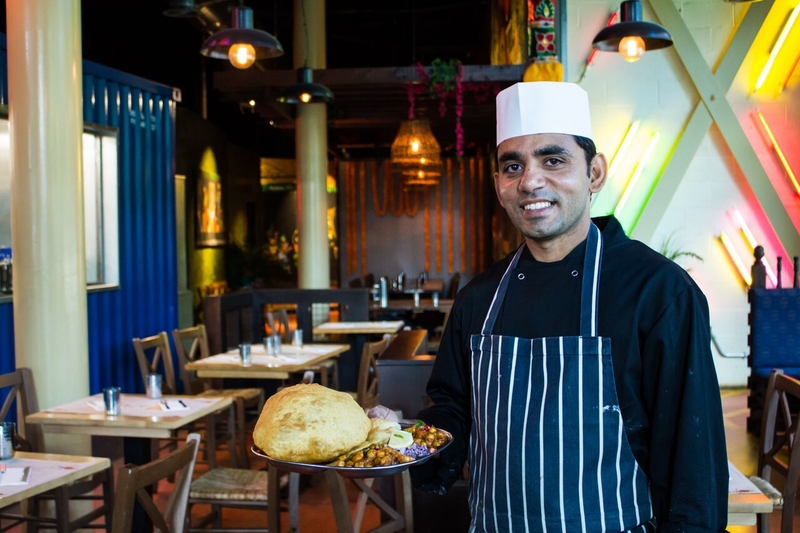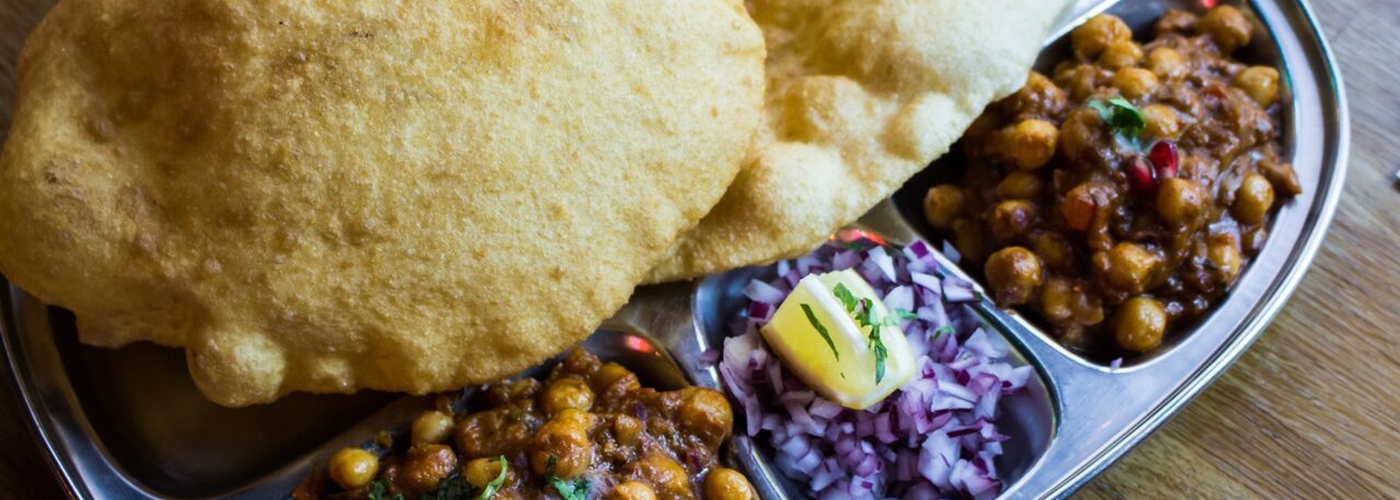Recently, we were invited over to The Indian Tiffin Room, to meet their head chef and talk about the inspiration behind their menu. Chef Sel was a crucial part of their original team when they opened the very first Indian Tiffin Room in Cheadle in 2013 – five years later, they have much bigger restaurants in Manchester’s First Street and Greek Street in Leeds, with plans for further expansion in the near future.
“In 2013, we got together and worked out what dishes we missed from our childhoods in India,” Chef Sel told us. “At that time, no one in the UK knew about all the amazing dishes you can find from street vendors and markets over there.”

As people are becoming more well travelled, and guide books and television programmes are becoming more adventurous, people are beginning to realise that there is a whole lot more to Indian food than standard curries with various heat levels from creamy kormas, to vinagery vindaloos and tear inducing phaals. Food traditions, cooking styles, specialities and available ingredients differ from region to region, so how did they decide what to put on their menu?
"the original concept came from a desire to bring the best street food dishes to the UK”
“We picked our favourite dishes from all around India,” says Chef Sel. “People don’t realise how healthy proper Indian food is. It can take over a month for an average Indian home to go through just a litre of cooking oil.”
Although the original concept came from a desire to bring the best street food dishes to the UK, there were also practical reasons for the design of the menu. “We have a formula,” explains Sel, “we offer a simple one page menu and everything is made fresh from scratch. There’s little storage in our tiny Cheadle restaurant, so we have always prepared our ingredients only as we need them to cook our dishes.”

Although there are quite a few excellent chicken and lamb dishes on the menu, vegetarians and vegans will notice that extra attention has been given to non-meat dishes. The ITR owners themselves are vegetarian – India has one of the lowest rates of meat consumption in the world, so you’ll find some more interesting dishes at ITR that you won’t find anywhere else – there is even a separate vegan menu.
You can work your way through tandoor broccoli, beetroot shami kebab, Indo-Chinese cauliflower, and a medley of different steamed rice and lentil dumplings and doughnuts. Breads and pancakes are also a speciality; you have to try their range of masala dosas - huge crisp pancakes stuffed with a spicy potato filling.
“Food is medicine,” assures Chef Sel, “from breakfast to bedtime.” He then goes on to tell us how his grandmother has never been to hospital – which she puts down to her healthy diet. “Each ingredient plays a big role in the human body; cumin helps digestion, turmeric is antibiotic and so is garlic and ginger and so on.”

He then went on to show us how to make a typical Indian breakfast dish; channa batura, which quickly became a best seller on their menu throughout the day. It is made with chickpeas, a pulse which is full of protein, helping to provide energy for a good part of the working day.
Into a little hot oil, go whole cumin seeds. Once they start to pop, add chopped onion, green chilli, minced ginger and garlic – with a little water to prevent it sticking and burning, as that can impart a bitter taste. Then he added some ground spices; coriander, cumin, chilli, amchoor (dry mango powder), paprika (for colour) and garam masala (which, of course is Chef Sel’s own special blend of aromatics.)
Into the spice mix goes a little water, the chickpeas (which have been soaked overnight, then boiled until soft) and some freshly blended tomato. Once that starts bubbling, chef Sel mashes it a little to help thicken the sauce. It’s served with fresh chopped coriander and onion, and a squeeze of lemon.
To help scoop it up, it comes with batura, a puffed bread similar to a roti, or chapatti. The difference is that it is made with self raising flour and deep fried until it puffs up like a huge billowing pillow.
We love it when restaurants invite us into their kitchens. It really helps to give us a deeper understanding of the idea behind their concept, to meet some of the people making and serving the dishes and to even pick up a few kitchen secrets.
Find The Indian Tiffin Room at 2 First St, Manchester M15 4RL.




